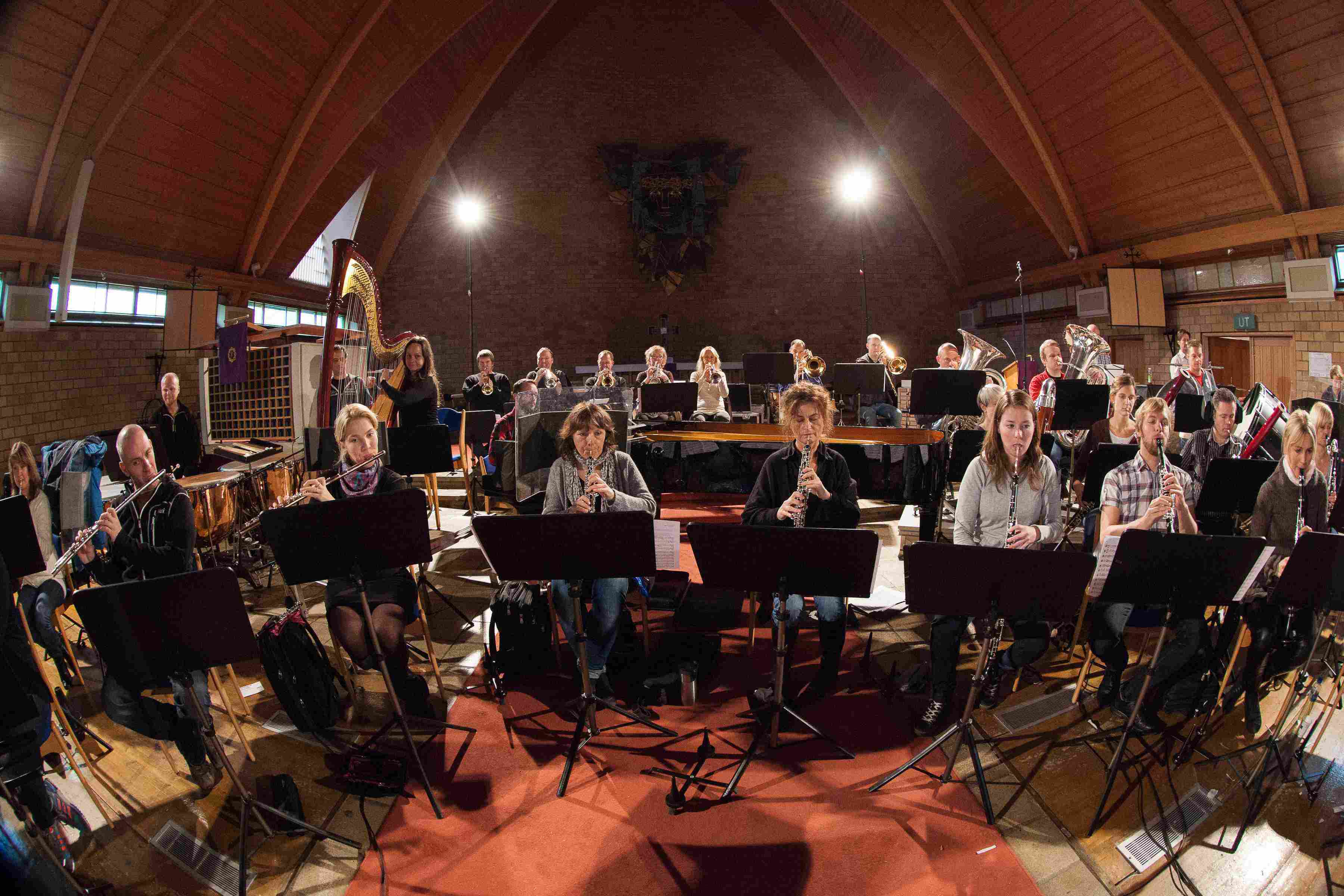NORWAY
TWO FINE CDS FOR CHRISTMAS
One of my outstanding memories of the 2003 WASBE Conference in Sweden was the exceptional concert given by the fine Staff Band of the Norwegian Armed Forces. At the time, the band was conducted by an excellent violinist, and when I conducted the band a few years later in their wonderful concert hall, pictured here, the feel for balance and phrasing was still apparent; we have much to learn from our orchestral colleagues in the matter of the niceties of musicianship. I was very disappointed that they were unable to play in Taiwan, but I am delighted that they are now back in the recording studios: Two fine CDs for Christmas.

The Staff Band of the Norwegian Armed Forces is one of the most highly regarded military orchestras on the international scene. On this new album entilted A Tribute to the Northern Winds the band performs a collection of pieces by Scandinavian composers. It includes a trumpet concerto by Jukka Linkola which features the critically-acclaimed young soloist Tine Thing Helseth, as well as music by Sallinen, Hovland, Alfvén, Thommessen, and Schmidt.
In recent years the trumpeter Tine Thing Helseth has become one of the most sought after instrumental soloists in Europe, following her previous CDs for Simax, and . This winter she gave her debut recital in Carnegie Hall. On this new album she joins the Staff Band of the Norwegian Armed Forces in a performance of the Trumpet Concerto No. 2 by composer and jazz pianist Jukka Linkola. The music is playful and virtuosic, and is strongly influenced by the blues.
Renowned Finnish composer Aulis Sallinen incorporates his nation’s passion for the tango in a piece entitled ‘The Palace Rhapsody’. ‘Stabsarabesque’ was written for the Staff Band in 1974 by Norwegian composer Olav Anton Thommessen and has become one of his breakthrough pieces. Egil Hovland was also born in Norway and his ‘Fanfare and Choral’ is well known both in the version for symphony orchestra and in this original version for wind band. Hugo Alfvén is one of the most influential Swedish composers, and his Festival Overture is an elegant and heartfelt declaration of his love for the folk music of his homeland. Olé Schmidt was born in Denmark and is best-known for his work as a conductor. His ‘Homage à Stravinsky’ is a short three-movement piece written in 1985.
Just published this month, November 2012, is a recording entitled La Voie Triomphale, The Triumphant Way catalogue no 2L – 086 – SABD
The years before, during and after the French Revolution were a turning-point for wind ensembles throughout the world. They developed from being small ensembles, with each instrument represented in pairs, to being something much larger. At the same time, the repertoire moved rapidly from the chamber music for wind instruments of Mozart, Haydn and Beethoven to much larger works of almost orchestral dimensions by a new generation of composers.
The Staff Band of the Norwegian Armed Forces has on this recording chosen music by composers who all made significant contributions to the evolvement of the wind orchestra and to the literature for wind orchestra that we know today. The music is an exquisite selection of French drama, romance and epic tone poems composed at times of considerable political turbulence. It could be precisely this political backdrop, combined with the wind orchestra's hitherto unexplored potential, that goes some way towards explaining why composers like Berlioz, Bozza, Saint-Saëns, Tomasi, Dukas and Milhaud chose to write large-scale works for the wind orchestra - works that are still considered an important part of the standard wind ensemble repertoire today, a repertoire the Staff Band of the Norwegian Armed Forces performs with the elegance, virtuosity and energy the music demands; The Triumphal Way!